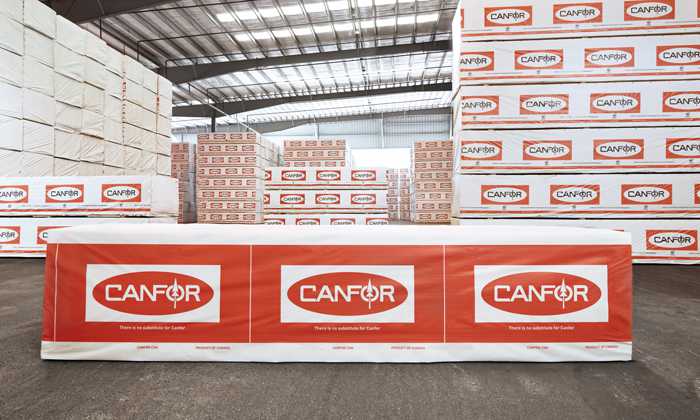Update 10:00 PM Wednesday:
Canfor issued a statement tonight (Wednesday) that a total of 490 employees will be impacted by the closures in Chetwynd and Houston.
The statement from the company reads:
In Chetwynd, today’s closure announcement potentially impacts up to 157 employees. We’re committed to supporting employees displaced by the closure, and where possible, employees will be prioritized for hiring and redeployment to other Canfor locations.
In Houston, it’s too early in the redevelopment planning process to fully understand how many of our 333 employees who work at the Houston plant could be laid off. We have excellent people as part of our Houston team and want to support them. In addition to potential relocations to other Canfor operations during this transition, we will also be working closely with our union, the United Steelworkers, to fully explore creative options to keep as many people as possible working. This could include opportunities in Houston through the project or other site activities, as well as jobs at other Canfor locations during the temporary shutdown.
If we were not able to reach a positive final investment decision on the Houston redevelopment project, Canfor would need to reevaluate the future of the Houston mill at that time.
Original story:
Two weeks ago to the day, Canfor announced it will shut down its pulp line in Prince George.
Today (Wednesday), they announced the closures of two more northern BC operations.
Chetwynd’s sawmill and pellet plant are permanently closing down, while Houston will be closing up shop for an extended period for “redevelopment on the site.”
They said the “company intends to build a new, modern, globally competitive manufacturing facility that employs state-of-the-art technology to produce high-value products from the sustainable timber supply in the region.”
Canfor’s official release does not give a timeline for re-opening in Houston, but a document given to impacted employees that has been obtained by My PG Now says “it is expected to take about two years to construct the facility if approved by the board of directors,” and “if approved, the new mill is expected to come online in 2025 at the earliest.”
They said the mills will wind down and close early in the second quarter of 2023, removing around 750 million board feet of lumber annually.
As a part of a statement, Canfor’s President and CEO Don Kayne said “our goal is to match our mill capacity with the economically available fibre for harvest to enhance our ability to compete and to operate throughout the market cycles. This is what will ultimately create greater stability for our employees and communities while ensuring we can continue to provide the high quality, low carbon products that are in demand by our customers around the world.”
For his full statement and Canfor’s release, click here.
#
B.C. Forests Minister Bruce Ralston has issued a statement on the closures:
“Today’s announcement is incredibly difficult for the workers, their families and the communities they live in. Our government is committed to supporting forestry workers impacted by closures and also to support good, long-term jobs in the sector.
“Our immediate priority is to support the workers and families impacted by the closure of the Chetwynd sawmill and pellet mill, and the temporary closure of the Houston mill. Community support teams have been activated and will be there to connect workers with the services they need.
“Forestry is and will remain a foundation of the B.C. economy. Our government has made recent investments as part of our ongoing work and commitment to ensure that forestry remains a strong and sustainable industry in British Columbia.
“We welcome Canfor’s plans to build a modern, globally competitive manufacturing facility in Houston, ensuring good forestry jobs remain in the region, and aligning with our government’s goal to produce higher-value products from the available sustainable timber supply.
“The Annual Allowable Cut has declined due to the end of the beetle kill harvest and unprecedented wildfires around the province. In the Houston area, the annual harvest has declined by more than 25% compared to 2008 during the height of the beetle epidemic.
“In the last week, government announced the $90-million BC Manufacturing Jobs Fund that will promote value-added innovation in the forestry sector, $50 million in funding to increase fibre supply, and we launched a new program to provide dedicated access of timber to valued-added manufacturers.
“British Columbians expect that we get the most value from our forests while building a stronger, more resilient forestry sector that works that better shares the benefits with local communities and workers.”
With files from Hartley Miller and Brendan Pawliw
Something going on in the Bulkley Valley Lakes District you think people should know about?
Send us a news tip by emailing [email protected].





